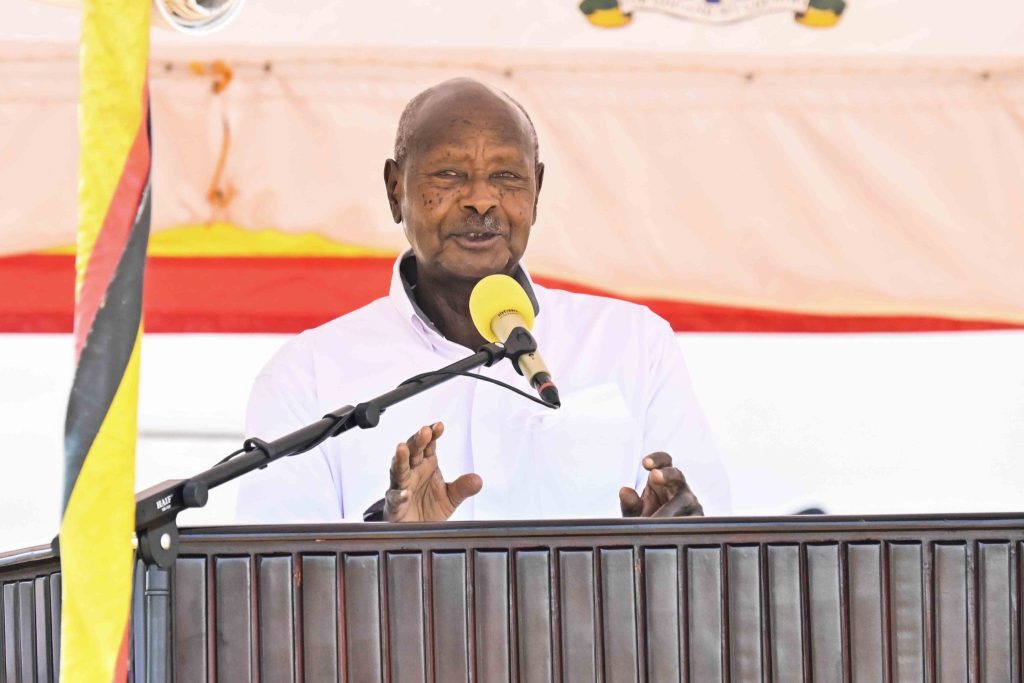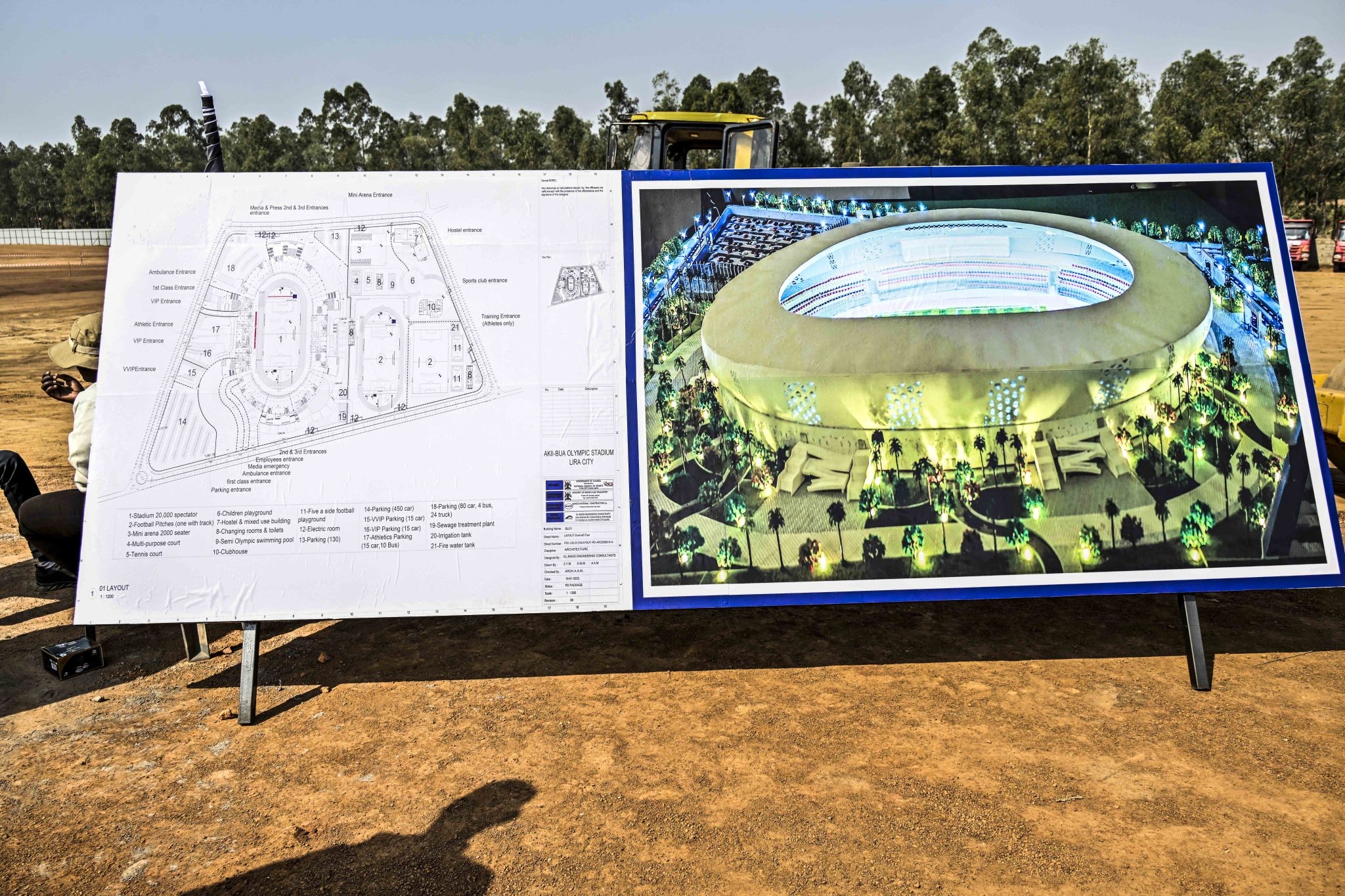President Yoweri Kaguta Museveni, with the First Lady and Minister of Education and Sports. Janet Museveni, officially launched the construction of the Akii-Bua Olympic Stadium, a long-awaited tribute to one of Uganda’s greatest, yet often overlooked, sporting legends in a ground breaking ceremony in Lira City.
With a price tag of $129 million (about UGX 470 billion), the state-of-the-art facility will be built by Egyptian firms SAMCO National Construction Company and Khater Sports, with an ambitious 20-month completion timeline. If all goes as planned, Lira City will have a world-class sport complex—one that, at long last, will bear the name of a man whose legacy transcends athletics.
John Akii-Bua’s story is one of extraordinary triumph and quiet tragedy. A policeman by profession and an athlete by destiny, he stunned the world at the 1972 Munich Olympics by winning the 400m hurdles in a world-record time of 47.82 seconds—Uganda’s first-ever Olympic gold. He did it with no professional training, no high-tech gear, and no sponsors. Just raw talent, grit, and an unyielding spirit. Yet, despite his triumph, Akii-Bua never got the hero’s recognition he deserved. His later years were marred by political turmoil, exile, and financial struggles. He died in 1997, not in a palace of national honor but in quiet obscurity. This stadium, rising in the city where he first discovered his talent, is more than concrete and steel—it is a long-overdue salute to a man who ran Uganda’s name into the history books.
President Museveni addressed the years of delay, making it clear that the issue was never about negligence but prioritization. “The issue was never that we didn’t care. It was about survival first. Peace, infrastructure, education, health—these had to come first. But now, we are here,” he said.
He also dismissed political narratives tying the project’s timing to the upcoming elections,
warning against what he called “elections based on lies.” He emphasized that the stadium was not a campaign gimmick but part of a broader national vision, especially as Uganda prepares to co-host the 2027 Africa Cup of Nations (AFCON) with Kenya and Tanzania.
When completed, the Akii-Bua Olympic Stadium will be more than just another sports venue; it will be a multi-purpose sports hub. The blueprint includes a 20,000-seat main stadium, a 2,000- seat indoor sports arena, a semi-Olympic swimming pool, courts for basketball, volleyball, netball, and badminton, a 60-room hostel for athletes, and a 1,000-car parking lot. The facility will also house a clubhouse, training pitches, and a borehole to reduce maintenance costs.
The First Lady, Janet Museveni, called the groundbreaking “God’s perfect timing,” acknowledging past delays but emphasizing the future. “This is a new chapter in our sports sector. These facilities will serve beyond AFCON, beyond the Olympics—they will serve generations.”
Lira City Mayor Sam Atul thanked the government for the project, saying it will boost economic transformation in the region.;
“Our people now understand that they can participate in economic productivity. We would like to pledge that with your support, we shall continue mobilising this population to fight poverty and kick it out of our community, “Atul said.
The Minister of State for Sports, Peter Ogwang, reassured sports fans that the Akii-Bua Stadium will be a state-of-the-art facility, surpassing existing stadiums like Namboole and Hoima. ” Forget about Namboole and Hoima. This facility is going to be the best in the whole country, ” he said.
The project completion is expected to have significant implications for the 2026 elections, with some analysts viewing it as a key determinant of votes in the Lango Sub-region.

Uganda’s sports infrastructure is finally getting the attention it has long deserved. Renovations are already underway at Mandela National Stadium (Namboole), Nakivubo, and Hoima Stadium, with additional plans to construct regional stadiums in phases, including Buhinga, Kakyeka, and an upgraded Lugogo Sports Complex.
Uganda has stadiums. But how many of them mean something? How many carry the weight of history, the spirit of a man who outran the odds? The Akii-Bua Olympic Stadium will not just be another venue—it will be a reminder. A reminder that talent can be born anywhere, even in a small town in northern Uganda. A reminder that heroes should not be celebrated only in death.
And perhaps, when the first race is run on this track, someone from Lira, inspired by the name etched into its walls, will chase their impossible dream—and win.


